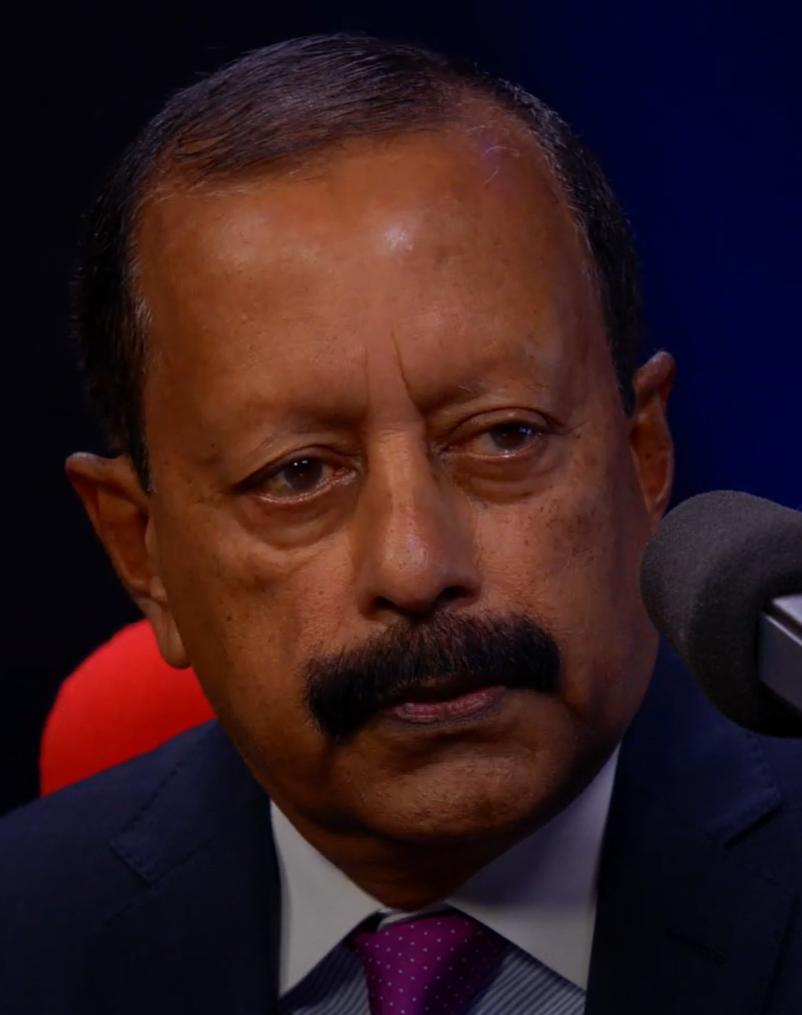Service Through Public Health | Dr. Jacob Eapen
Transcript:

To receive our free newsletter, contact us here.
Subscribe our YouTube Channel for more updates.
This transcript was generated by software and may not accurately reflect exactly what was said.
Alan Olsen, is the Host of the American Dreams Show and the Managing Partner of GROCO.com. GROCO is a premier family office and tax advisory firm located in the San Francisco Bay area serving clients all over the world.

Alan L. Olsen, CPA, Wikipedia Bio
Dr. Eapen completed his MBBS from Trivandrum medical college in India in 1976 and Pediatric training at Christian Medical College, Ludhiana, India. Dr. Eapen left his kith and kin, the security and familiarity of the country that he was born and brought up and reached the shores of Africa, where he worked as the Director of Pediatric Unit in Agha Khan Hospital in Dar-Es-Salaam, Tanzania in 1980. In pursuit of his passion for reaching out to many more, he accepted an offer to teach in Sub-Sahara, Nigeria, Africa without neglecting to practice for the undernourished children and their parents. He also mastered two native languages– Swahili and Hausa.
In 1988 Dr. Eapen was appointed Health Advisor by the United Nation High Commissioner for Refugees (IJNHCR) to the Republic of the Philippines. He accepted this new challenge to cater to the needs of nearly 30,000 Indo-Chinese refugees in the Philippines Refugee Processing Center, Battan, Mary Oliver, in “Wild geese,” wrote: “Wherever you are, no matter how lonely, the world offers itself to your imagination, calls to you like the wild geese, harsh and exciting– over and over announcing your place in the family of things.” Dr. Eapen had to reinvent himself in this new world meeting new challenges and coping with stress of work. He endeared himself to the refugees, created meaningful relationships with the staff and addressed himself to learning more and more. With his expertise and long standing experience, Dr. Eapen crafted a health proposal for the underserved Filipino indigent population that lived around camp at Morong, Battan. Mr. Herman T. Laurel, Adminstrator at the Refugee Processing Center wrote: “No other Medical advisor before him has figured as positively in Health Services group affairs, nor shown as much commitment to its mission, for which he has earned our respect and high esteem.” Sylvia Bitler, the nursing coordinator of World Relief Council (WRC) paid him tribute as he was leaving the Philippines in the following words, “This brilliant and compassionate man literally hides a world of expertise behind his unassuming manner. Our loss is certainly the gain of his next associates”
In 1990 Dr. Eapen was appointed Director for Research and Public Heath Programs at International Health Services, Mountain View, California. The objective of this not-for- profit organization was the development of appropriate but low-cost diagnostic kits for use in developing countries. Dr. Eapen also conducted a USAID-supported clinical thai in India on a simple device to test for tuberculosis. While serving as the Director of International Affairs for Stop Aids Worldwide (SAW), Dr. Eapen met Mother Theresa at Calcutta, India, to promote the work of this organization in India. He has also brought his expertise in the health problems of children in developing countries to the doorsteps of many centers of learning. He has lectured on Primary Health care and Health Issues in a Refugee Camp, to students at Stanford and UCSF Medical schools as well as at the School of Public Health at Berkeley. Good medical practice comes in myriad forms, but good doctors share one trait: they are truly present in their clinics, deeply engaged with their patients and their area of specialization. Dr. Eapen’s commitment to the healing ministry and his compassion for the poor have brought many honors and accolades:
Honored by Stanford Medical School: Selected as one of 40 outstanding Stanford Medical Alumni from among 7000 graduates of the last 60 years to be profiled in a book commemorating 40 years of the Stanford Medical School in Palo Alto.Spectacular Care Giver of 1999: “In recognition of your outstanding patient service, consistently superior level of performance and reliable contributions to the team at NewarkJ-lealth Center” – Alameda County Health Services2001 Global Awards & Golden Honour from Kerala Kala Kendram, associated to Kerala Sangeetha Nataka Academy (Fine Arts Council of Kerala.
Currently, Dr. Eapen serves as Pediatrician for Alameda County Health Services where he reaches out to the poor children in Oakland and Newark, and the juveniles in their retention center in San Leandro. California is fortunate to have the services of Dr. Eapen, taking into account the numerous uninsured and indigent people that populate the area.
Bio Source: Smartvoter.org
Alan is managing partner at Greenstein, Rogoff, Olsen & Co., LLP, (GROCO) and is a respected leader in his field. He is also the radio show host to American Dreams. Alan’s CPA firm resides in the San Francisco Bay Area and serves some of the most influential Venture Capitalist in the world. GROCO’s affluent CPA core competency is advising High Net Worth individual clients in tax and financial strategies. Alan is a current member of the Stanford Institute for Economic Policy Research (S.I.E.P.R.) SIEPR’s goal is to improve long-term economic policy. Alan has more than 25 years of experience in public accounting and develops innovative financial strategies for business enterprises. Alan also serves on President Kim Clark’s BYU-Idaho Advancement council. (President Clark lead the Harvard Business School programs for 30 years prior to joining BYU-idaho. As a specialist in income tax, Alan frequently lectures and writes articles about tax issues for professional organizations and community groups. He also teaches accounting as a member of the adjunct faculty at Ohlone College.


